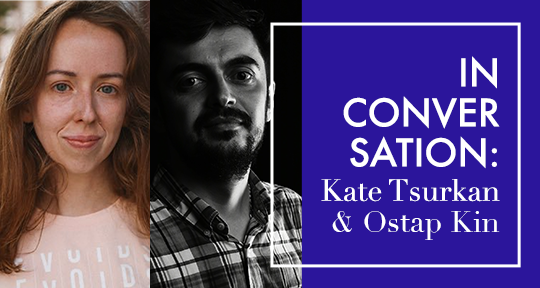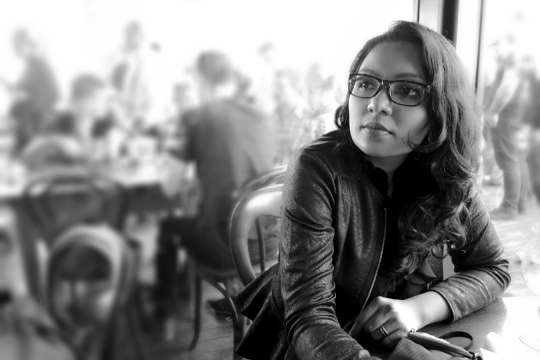Yaryna Chornohuz is a combat medic in the Ukrainian Marines, currently serving on the frontlines. She also happens to be a brilliant poet, capturing the reality of the Russian invasion with powerful lyricism. I was very moved by Chornohuz’s “A Cycle of Wartime Poems” translated by Kate Tsurkan and Ostap Kin, which were featured in our Summer 2022 issue. I had the opportunity to interview Tsurkan and Kin about the importance of literature in the time of war, and we conducted our conversation over email, from our respective homes in Ukraine, the United States, and Ireland. I am proud to share this dialogue, in which we discuss—among other things—how language can be an act of resistance and how it is crucial, now more than ever, to amplify the work of Ukrainian writers and artists.
Rose Bialer (RB): I would like to begin by asking how each of you came to translating Ukrainian literature? How did you first encounter Chornohuz’s poetry?
Kate Tsurkan (KT): Well, I am first and foremost a trained scholar of French literature, but life is truly full of surprises. By a twist of fate, I moved to Ukraine, and a year later, I met my husband and ended up staying here. What was simply a field of interest in my work as a literary magazine editor became an obligation to understand and delve deeper into the culture that I’d married into.
As for Chornohuz, I first learned of her poetry through the journalist Justina Dobush, who read aloud the poem “too red a spot” for Asymptote. She also did an interview with Chornohuz for Apofenie, and kept telling me that this is a writer to keep my eye on. I owe a lot to Justina because when I was just starting out and admittedly knew very little, she was one of those Ukrainians giving me much-needed insight on the contemporary literary scene and Ukrainian culture in general. Chornohuz is part of the growing genre of Ukrainian veteran literature; prior to her role in the military, she was an active member of the Ukrainian literary sphere and also worked as a translator. These days, Ukrainians know her best for her military service and activism. Her poetry and overall perspective on war had such a visceral impact on me that I felt it needed to be shared with the world.
Ostap Kin (OK): I’m originally from Ukraine, born and raised there. When I switched continents, I started translating from Ukrainian into English. It all started as a combination of factors, including challenge, curiosity, and a need to experiment; I wanted to get firsthand experience about how work that appeals to me may sound in English, and what the whole process looks like. Lastly, I did hope to share Ukrainian literary works with others.
I heard about Yaryna Chornohuz from the news sometime in 2020. As an activist, she protested, I remember, in the governmental headquarters. Kate Tsurkan is the one who introduced me to her poems and invited me to work on their English language.



